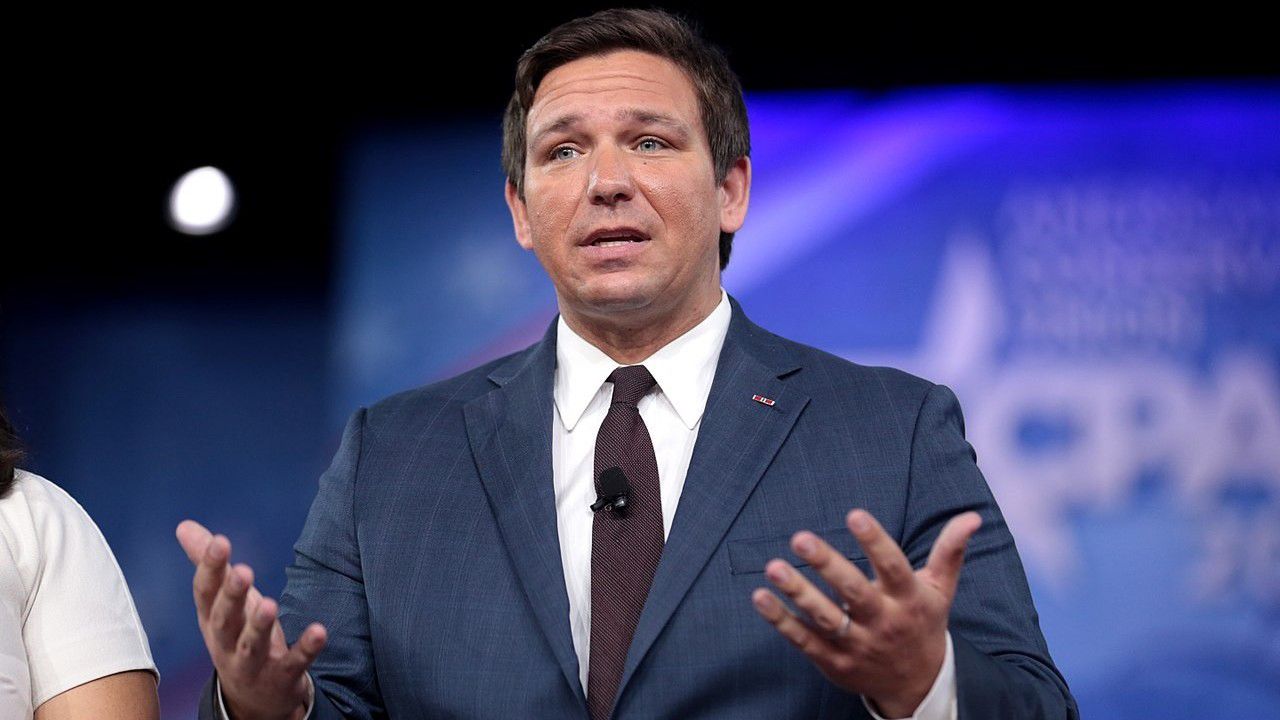TALLAHASSEE, Fla. — Florida Gov. Ron DeSantis laid out his 2021-2022 budget wish list, totaling $96.6 billion.
This is $4.3 billion more than last year’s budget, with considerable increases in pandemic-related programs.
What You Need To Know
- DeSantis: Florida economy faring better than previous estimates
- Proposal includes more money for education, COVID-related expenses
- READ: Details of Gov. DeSantis's Budget Proposal
- COMPLETE COVERAGE: Florida Legislature News and how to contact your state lawmakers
The governor sold the point that the pandemic hit the state especially hard, but with some belt tightening, and billions in federal aid, the state is faring better than previous estimates.
“Before we knew the impacts, I took a proactive approach,” Governor DeSantis said, drawing to $1 billion vetoed in last year’s $93.2 billion budget and ordering state agencies to reserve 6% of their budgets, totaling $800 million.
The governor’s budget proposal includes and additional $2.6 billion in COVID-related expenditures, with $400 million going to Florida Department of Emergency Management. The remaining is part of an estimated $3 million growth in Medicaid costs, with more Floridians qualifying for the program.
As @GovRonDeSantis rolls out his FY 2021-22 budget proposal this morning, he argues the state has weathered the pandemic well financially: “While so many other states kept locking people down, Florida lifted people up.” pic.twitter.com/Y230UzOOs0
— Troy Kinsey (@TroyKinsey) January 28, 2021
DeSantis said $4.5 billion in CARES Act funding to the state also helped Florida maintain steady financial ground, and hold off on having to dip into reserve funds, which total $6.6 billion.
Promising no new taxes, DeSantis said his budget will focus on further investments in education and the environment, while also cutting $1 billion over the next two budget cycles.
“While the economic outlook remains strong, we’ve not fully realized the COVID impact,” DeSantis said. “The Florida Lead budget takes this into account and includes over $1 billion in reductions over the current fiscal year and next. Even though there are $1 billion in reductions, we continue to make important investments in education and the environment.”
Education
DeSantis’ proposal includes $22.8 billion for K-12 education to provide districts with $8,019 per student.
The governor is also requesting $550 million to increase starting pay for teachers to $47,500, as well as mental health services, and a freeze on university tuition hikes.
Environment
The governor included $1 billion to address impacts of intensified storms and impacts of climate change, although he did not use the term “climate change”.
The request also includes $50 million for a new “Governor’s Road Fund” that appeared to have been described as a general account the governor’s office could use to fulfill direct requests for infrastructure projects.
The governor painted an optimistic financial picture, saying revenues are already surpassing previous forecasts; $330 million more in December than expected.
The governor did say he is in favor of renegotiating the Seminole Tribe Compact, which provides the tribe with exclusive gaming rights, and that he would accept additional federal stimulus dollars.
DeSantis reasoned in accepting additional federal dollars in that he said the federal government (under President Donald Trump) is to blame for the economic fallout and March 2020 pandemic hysteria.
“A lot of what we saw in March was not because of the state government,” DeSantis said.
Laying out 21-22 budget wish list, Governor Ron DeSantis said he's open to accepting more federal stimulus dollars, saying the federal government (under President Trump) is to blame for the economic fallout.
— Greg Angel (@NewsGuyGreg) January 28, 2021
He points to March 2020, saying the feds shut everything down.
BUT -- pic.twitter.com/NtqWC8ze3M
It, however, should be pointed out that DeSantis ordered Florida’s surgeon general to declare a Public Health Emergency on March 1, 2020. The governor also issued an executive order on March 17, 2020 limiting capacity and business operations, impacting restaurants, bars, clubs, beaches, and other facilities.
The governor did not order area theme parks and attractions to close, but Walt Disney World, Universal Orlando, and others opted to close on their own. In Summer 2020, DeSantis gave the parks permission to fully open, however they continue to open at partial capacity.
In touting the strides Florida has made since the start of the pandemic, the governor said Florida has come from a period of historic high unemployment to a point of rebounding. However, the governor is not likely to support a measure to expand unemployment benefits, which would add additional costs on businesses.
Due to prolonged surges in layoffs and furloughs, Democratic lawmakers are pushing an effort to expand Florida unemployment benefits from 12 weeks to 26 weeks and from $275 per week to $500 per week.
Floridians keep telling me they have claim issues and troubles even connecting with FL DEO.
— Greg Angel (@NewsGuyGreg) January 28, 2021
DEO Executive Director Dane Eagle told me in November they're pushing for fixes - and more staff.
But, that may not be happening.
Background: https://t.co/G4eNQgdZJk pic.twitter.com/HzQN67mna6
The governor also did not say whether he favors an effort to expand collection of online sales tax revenue.
There are efforts in the legislature to require the state to receive taxes on any online transaction. Current state law only requires business to collect online sales taxes if that business has a physical presence in Florida.
Crafting The Budget
The governor’s proposal is merely a ‘wish list’ of sorts.
The one task lawmakers must accomplish when they meet in March to begin the 2021 Legislative Session is to pass a balanced budget.
Facing a potential $3 billion budget shortfall over the next two fiscal years, lawmakers are working on how to fill the gap. While some are proposing across-the-board cuts, others say Florida is failing to take in revenue its owed.
We took a closer look at the 2021 Florida Budget Process on our show, Political Connections.



